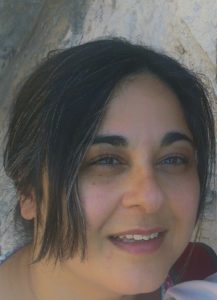What We Inherited opens today with author Eugene Fischer‘s answer to my question about categorizing stories–tagging them with qualities that highlight sexual preference, gender, ability, or race: I think that the purpose of this kind of categorization is to tell marginalized people, “Hey, you know that thing that’s really personally important to you but broadly culturally ignored? It’s important too! Here’s a cultural artifact the very existence of which implies your lived experience matters!”
That’s hopefully, at the very least, psychologically empowering. Empowering the marginalized is a virtuous pursuit. Any knock-on benefits of artistic work increasing the perceived humanity of the marginalized are nice too.
I have asked Eugene here as part of my series of interviews about the Heiresses of Russ 2016 anthology and his story, “The New Mother,” which originally appeared in Asimov’s Science Fiction.
Is categorizing stories in this way, then, a desired end point? A necessary stage on some collective journey humanity is taking?
Between desired end point or necessary stage on a collective journey, it’s definitely not the former. I’d certainly like to believe in the latter, but I’m uncomfortable thinking too teleologically about cultural development. One would hope for a society where polyphony, diversity, and individual dignity are celebrated on a level more fundamental than distastes and disagreements, and marginalization of any people seen to be abhorrent. (And, given the topic at hand, for that to be reflected in the way art is marketed and consumed.) But just at the moment I feel pretty pessimistic. It seems to me that cultural trends are, on the average, pointing in an infuriatingly regressive direction.
So: “Necessary?” Yes. “Stage?” Sigh. I hope so.
Would you say your story in the collection is typical or emblematic of your work, or an outlier?
My body of published work is still fairly small, but if I’ve been successful, it will be typical in the sense of being thorough and humane. Those are qualities I value in fiction. I like stories that take their aesthetic conceits seriously, and dislike stories that are reductive in their portrayal of individuals, cultures, science. My story in this collection is the longest I’ve published so far, and has been the most well-received, so there’s certainly a lot of positive reinforcement to continue working in the same mode.
One of my previous interview series, The Heroine Question, generated some interesting discussion of the gendered term Heroine. What do you think of Heiresses of Russ as a title for this project? Should it be Inheritors or Heirs?
Eugene Fischer grew up in San Antonio, Texas, and currently lives in Austin. His most recent publication, “The New Mother”, is included in Heiresses of Russ, and has won James Tiptree, Jr. Literary Award, come in 2nd place for the Theodore Sturgeon Memorial Award, and been a finalist for the Nebula Award. For forthcoming work, see his website, www.eugenefischer.com
About this interview: 2016 marked my debut as an editor, with the Lethe Press anthology Heiresses of Russ 2016. I co-edited with the capable and lovely Steve Berman; our Table of Contents announcement is here. At that time I asked some of my contributors if they’d be interested in talking a little about the ideas behind their stories, about the idea of lesbian-themed genre fiction, or anything else that seemed interesting and relevant. These are their replies.









